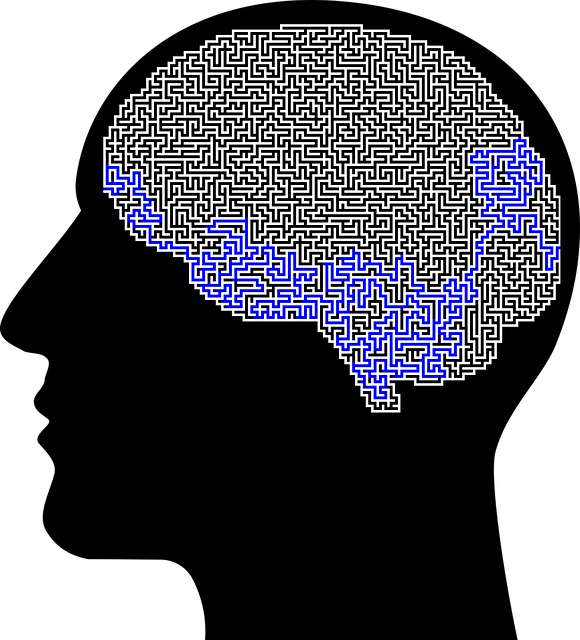Crisis Intervention Teams (CITs) offer vital support to German-speaking children facing emotional crises, filling a critical gap in traditional therapy services. With specialized training, these teams provide immediate de-escalation and long-term mental health guidance, addressing linguistic barriers and stigma. Effective CIT training should include mental health education, resilience building, and interactive workshops. Tailored therapy programs for this community equip children with coping skills, improve family dynamics, and foster overall mental wellness, ensuring all children receive the necessary care regardless of their linguistic background.
“Crisis intervention teams play a pivotal role in children’s mental health, offering immediate support during crises. This article explores the significance of these teams and delves into the unique challenges faced by German-speaking communities, emphasizing the need for specialized training programs. We discuss key components of effective crisis intervention team (CIT) training, highlighting cultural sensitivity and language proficiency as essential elements. Additionally, we provide insights on implementing and evaluating therapy programs tailored to the needs of children in the German-speaking community, focusing on evidence-based practices for optimal outcomes.”
- Understanding Crisis Intervention Teams: Their Role and Importance in Children's Mental Health
- The Need for German-Speaking Training Programs: Overcoming Language Barriers
- Key Components of Effective Crisis Intervention Team Training
- Implementing and Evaluating Therapy Programs for Children in the German-Speaking Community
Understanding Crisis Intervention Teams: Their Role and Importance in Children's Mental Health

Crisis Intervention Teams (CITs) play a pivotal role in addressing and managing acute emotional crises in children, particularly those from German-speaking backgrounds who may face unique challenges accessing therapy for children. These specialized teams offer immediate support to both the child and their family during distressing situations, focusing on short-term de-escalation and stability. The primary goal is to prevent escalating crises, promote emotional well-being, and facilitate access to long-term mental health services.
CIT members are typically trained professionals equipped with effective communication strategies and emotional support techniques. They employ evidence-based practices to help children express their feelings, manage intense emotions, and develop coping mechanisms. By fostering open dialogue and a safe environment, these teams encourage positive thinking and resilience in young individuals. This proactive approach is especially beneficial for those who might otherwise struggle to access traditional therapy services due to language barriers or cultural hesitations.
The Need for German-Speaking Training Programs: Overcoming Language Barriers

In today’s globalized world, the demand for specialized crisis intervention teams that can cater to diverse linguistic needs is more critical than ever. Traditional mental health services often struggle to accommodate individuals who speak languages other than English, creating significant barriers to access and effective therapy. This gap is especially pronounced in communities with high German-speaking populations, where qualified professionals are scarce.
The absence of German-speaking therapy for children exacerbates the challenges faced by families dealing with mental illness. Language acts as a crucial component in building resilience and fostering open communication, which are vital elements in mental wellness podcast series production. By implementing dedicated training programs for crisis intervention teams, communities can break down these barriers, reduce stigma associated with mental illness, and ensure that all individuals receive the support they need – regardless of their linguistic background.
Key Components of Effective Crisis Intervention Team Training

Effective crisis intervention team training programs are multifaceted, aiming to equip participants with the skills to handle a variety of crises, especially those involving children who may require therapy for children in German-speaking settings. A robust curriculum should include components that focus on mental health education programs designed to enhance understanding and de-stigmatize issues related to mental well-being.
The training must also delve into resilience building, teaching participants how to recognize signs of distress and implement stress reduction methods suitable for diverse populations, including children and their families. Interactive workshops, case studies, and role-playing scenarios are valuable tools that foster practical application of these skills. Such immersive learning experiences not only enhance understanding but also cultivate a supportive environment where team members can grow together, becoming more effective in crisis intervention.
Implementing and Evaluating Therapy Programs for Children in the German-Speaking Community

In the German-speaking community, implementing effective therapy programs for children is a vital step towards fostering mental wellness and crisis intervention guidance. These programs play a crucial role in equipping young individuals with essential coping mechanisms and resilience, especially as they navigate today’s challenges. Many organizations are recognizing the need to offer specialized services tailored to the unique needs of children, ensuring their emotional well-being. One such initiative includes the production of a Mental Wellness Podcast Series designed to engage parents, caregivers, and educators, providing valuable insights into various aspects of child mental health.
The evaluation of these therapy programs is an ongoing process that involves measuring their impact on children’s overall development. By assessing the effectiveness of interventions, professionals can identify areas for improvement and adapt their approaches accordingly. For instance, Stress Management Workshops organized for both children and their caregivers have shown promising results in enhancing family dynamics and promoting healthy stress-coping strategies. Such evaluations are essential to shaping evidence-based practices, ensuring that crisis intervention guidance remains up-to-date and relevant within the German-speaking community.
Crisis intervention team training is a vital component in improving children’s mental health, especially within the German-speaking community. By addressing language barriers through specialized programs, we can ensure that all children receive the necessary support. Effective training should include key components such as cultural sensitivity and evidence-based practices. Implementing and evaluating these therapy programs tailored to the German-speaking population is essential to enhance access to quality mental health care for our young folks.














